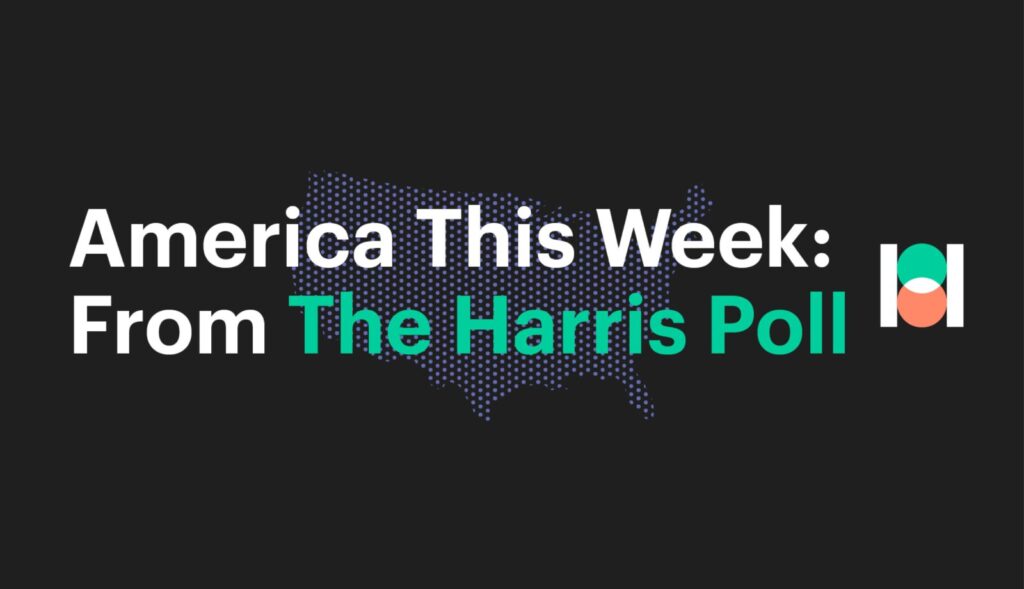Brief • 4 min Read
Crypto’s Big Tent, Employers Talk Hiring Challenges, DEI Rollback-lash, and We Are Savings-Deprived.
The latest trends in society and culture from The Harris Poll
One Fun Thing:
Let’s skip the economy momentarily and start with one fun thing. With spring here, Instacart and Harris partnered to reveal America’s most loved and loathed Easter and Passover foods. And the classics aren’t always crowd-pleasers (we’re looking at you, Deviled Eggs and Gefilte Fish). If you’re hosting, our research suggests having some Reese’s Peanut Butter Eggs and Cups with Cadbury Chocolate Mini Eggs.
We have four new stories this week:
- The demography of cryptocurrency owners is surprisingly broad and growing in diversity.
- A new Franklin Templeton Harris Poll of employers finds attracting talent difficult.
- A plurality of consumers is challenging corporate DEI rollbacks.
- Nerdwallet and Harris find that many Americans don’t know how much they save each month.
Crypto Is More Popular In Construction Than Finance: National Cryptocurrency Association-Harris Poll
As Americans seek better returns from this chaotic market, our National Cryptocurrency Association report, published in Fast Company, finds that cryptocurrencies have an increasingly broad base of investors.
- Today, one in five (21%) Americans currently own cryptocurrency, where nearly (40%) of American crypto holders live in the South.
- And while (14%) of crypto holders work in the tech sector, nearly the same number report working in construction (12%) compared to finance (7%), manufacturing (7%), and healthcare (6%).
- Crypto goes mainstream: A third of crypto owners are 45 years old or over (v. 18-24: 11%), and (31%) of all owners send cryptocurrency to family.
- Cryptocurrency diversity isn’t new: In 2021, we found with USA Today that Black, Latino, and LGBTQ investors see crypto investments like Bitcoin as ‘a new path’ to wealth and equity.
Takeaway: Crypto ownership routes around traditional financial investments’ socioeconomic barriers (racial bias, income bias, etc.). This is likely why crypto owners are a fairly diverse group. With a surprisingly low bar for entry, all that’s needed to start purchasing crypto is a brokerage account and a few dollars, as many cryptocurrencies have low values. Further, (45%) think cryptocurrency should promote financial inclusion and reduce poverty in the future.
Talent Is Harder to Find Than to Keep: Franklin Templeton-Harris Poll
Talent retention, sustaining a competitive edge, and managing benefit expansion within budgets are among the top challenges in our new survey of employers with Franklin Templeton.
- Attracting talent is more challenging: (81%) of employers noted that hiring new talent is more difficult than retaining current employees.
- This follows a trend we found with Bloomberg, where (71%) of workers think it’s more challenging to find a better job than their current one.
- The war for talent: Employers have said their competitors are ramping up efforts to attract new workers. Nearly half (45%) of firms reported experiencing employee turnover (20%+).
- But don’t take your employees for granted: (88%) of employers say, “even with unclear options elsewhere, employees are willing to leave if they aren’t happy.”
Takeaway: “Compensation is a leading issue when employers are considering hiring and retaining workers. It’s also a priority for employees,” writes Jacquelyn Reardon, Head of U.S. Marketing for Franklin Templeton. “Unsurprisingly, employers in the survey reported increased employee expectations around compensation in recent years. Compensation is closely followed by work-life balance, benefit offerings, and career advancement as top priorities for employees.”
Consumers and DEI Rollbacks: Ad Age-Harris Poll
Amid all the walking back of diversity commitments, a market still exists for companies to hold their ground commercially. Values still matter for a plurality of consumers, and they’re holding brands accountable in our new survey with Ad Age.
- Nearly one-fifth (19%) of Americans have stopped supporting a brand because its approach to DEI either contradicted or reversed previous efforts.
- Another (19%) disengaged when the brand’s stance wasn’t authentic.
- This is not a passing trend: (70%) of Americans now expect brands to follow through on their social stances – especially Millennials (76%).
- Transparency is also top of mind: (64%) said a company’s openness in its advocacy is more important today than in the past (Gen Z: 76%).
- And among Gen Z, they’re the most likely generation to purchase from a brand that prioritizes DEI in their business practices (v. gen pop: 39%).
Takeaway: Despite mounting consumer expectations that brands stand firm on their social values, major companies such as Amazon, Target, and PepsiCo are scaling back or scrapping diversity, equity, and inclusion (DEI) initiatives altogether. This move reflects a broader corporate shift from public commitments to racial equity. Companies have a choice: Prioritize consistent values or risk alienating key audiences by offering only intermittent support based on shifting cultural or political winds.
A Quarter of Americans Are Unsure of Their Monthly Savings: NerdWallet-Harris Poll
We’re a few months into the year; have you checked in on your savings? Our recent Savings Report with NerdWallet finds you probably should sooner than later.
- The new year arrived with savings goals: (40%) of Americans have at least one savings goal for 2025.
- Yet, nearly a quarter (23%) of employed Americans aren’t sure how much they’re saving in a typical month, with (10%) not regularly saving anything at all.
- Saving is random rather than automatic: More Americans with savings accounts say they transfer at random intervals when they have extra money (43%) more than automatically transferring a set amount regularly (29%).
Takeaway: Any method you use to squirrel away money is better than not saving. However, if you’re currently opting to save whatever is left over in checking after you get paid again — like (21%) of Americans with savings accounts – and find you aren’t saving as much as you want, it might be worth reevaluating.
Subscribe for more Insights
Subscribe to our newsletter for the latest trends in business, politics, culture, and more.
Related Content











